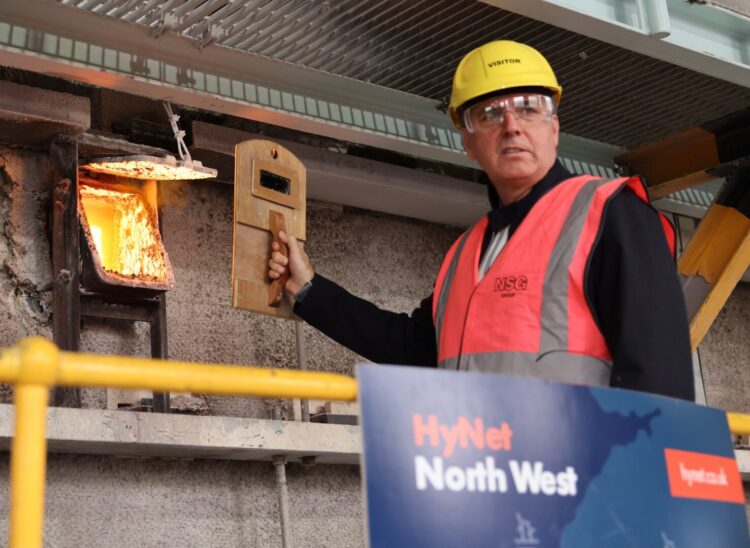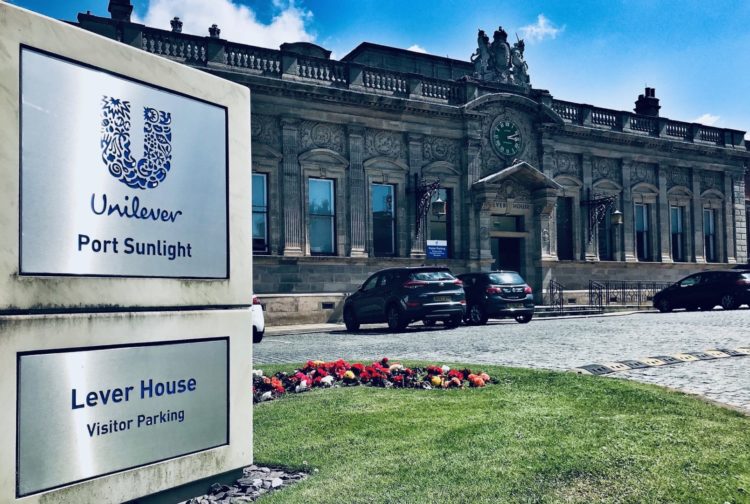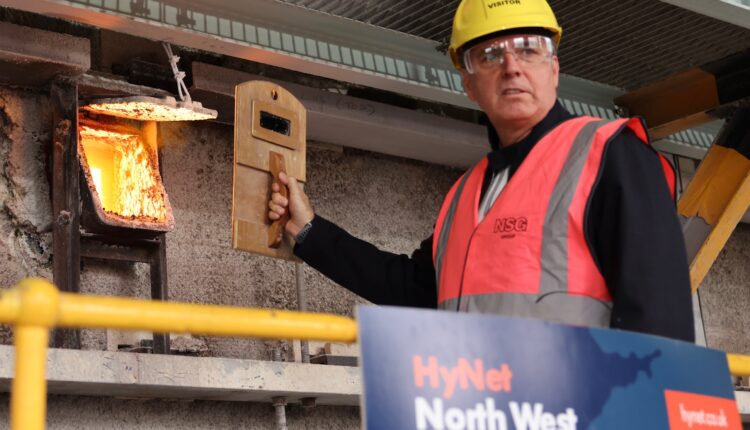In a world first, a trial is under way in Liverpool city region to produce glass using hydrogen instead of natural gas, slashing carbon emissions. Tony McDonough reports

Glassmaker Pilkington has started a trial at its Liverpool city region factory to make float (sheet) glass using hydrogen instead of natural gas.
If successful the trial will allow the company to slash carbon emissions and make a big contribution to the UK’s drive towards becoming net zero carbon by 2040. Pilkington first produced glass at the St Helens pant back in 1826.
Industry accounts for around 25% of all the UK’s greenhouse gas emissions. Reducing these emissions is vital if the country is to reach net zero.However, cleaning up energy intensive industry stands as one of the toughest challenges to meet.
Emissions from industry, such as glass making, can be especially difficult to reduce. Now that barrier which is one step closer to being overcome through this trial.
HyNet Industrial Fuel Switching project, led by Progressive Energy, with hydrogen being provided by BOC, will provide confidence that low carbon hydrogen from HyNet can replace natural gas.
This is believed to be the first large-scale demonstration of 100% hydrogen firing in a live float (sheet) glass production environment anywhere in the world. The Pilkington UK trial is one of several projects underway in North West England to test how hydrogen can replace fossil fuels in manufacturing.
A further HyNet trial is being held at Unilever in Port Sunlight later this year. Together, the demonstrations will support industry across sectors such as glass, food, drink, power and waste to convert to low carbon hydrogen, replacing their use of fossil fuels. Both trials are using hydrogen provided by BOC.
The HyNet Industrial Fuel Switching programme secured funding of £5.3m from BEIS through its Energy Innovation Programme in February 2020. HyNet will begin to decarbonise the North West from 2025.
By 2030, it will be capable of removing up to 10m tonnes of carbon from across North West England and North East Wales each year – the equivalent of taking 4m cars off the road annually.

The HyNet project is also developing the UK’s first low carbon hydrogen production plant at Essar Manufacturing Complex in Stanlow, which aims to be producing hydrogen that will be fuelling this switch from 2025.
Matt Buckley, UK managing director of Pilkington UK, part of the NSG Group, said: “Pilkington UK, and St Helens, are once again at the forefront of innovation in industry with this world first hydrogen trial on a float glass line.
“The HyNet project would be a massive step to support our decarbonisation activities. This full-scale production trial over several weeks successfully demonstrated that it is possible to use hydrogen to safely and effectively fire a float glass plant. We now look forward to the HyNet concept becoming a reality.”
The HyNet North West consortium includes Progressive Energy, Cadent, Essar, Inovyn, Eni, University of Chester, CF Fertilisers and Hanson.
Liverpool City Region Metro Mayor Steve Rotheram added: “I want the Liverpool city region to be at the forefront of the Green Industrial Revolution to take advantage of the jobs, investment and innovation that it will bring.
“Just as we led the first industrial revolution, our region is leading the green one too. HyNet has the potential to be a transformative project for our region, cutting carbon emissions across the North West by 25% and helping us take big a step towards our climate targets.”

